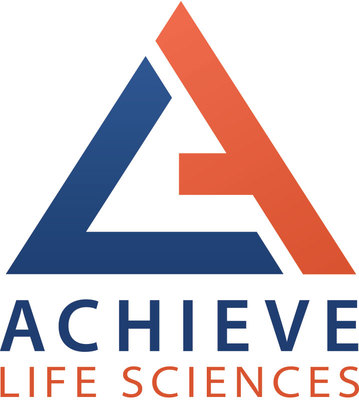Achieve Announces Presentation of Investigator-Led RAUORA Trial Data Demonstrating Significantly Fewer Side Effects with Higher Quit Rates for Cytisinicline (cytisine) Compared to Chantix® (varenicline) in First Head-to-Head Comparative Study
Achieve Life Sciences, Inc. (Nasdaq: ACHV) has announced positive results from the RAUORA trial, comparing cytisinicline to varenicline for smoking cessation among 679 Māori participants. The trial showed cytisinicline met the non-inferiority endpoint with a 4.29% higher quit rate (12.1% vs. 7.9%). Furthermore, cytisinicline demonstrated significantly fewer adverse events (AEs), particularly less nausea (22.5% vs. 39.1%). The trial's findings support the efficacy of cytisinicline and set the stage for the upcoming Phase 3 ORCA-2 trial.
- Cytisinicline achieved a 4.29% higher quit rate compared to varenicline.
- Significantly fewer adverse events reported with cytisinicline (Relative Risk 0.56).
- Expected to demonstrate better efficacy in the upcoming Phase 3 ORCA-2 trial.
- None.
Insights
Analyzing...
SEATTLE and VANCOUVER, BC, Sept. 18, 2020 /PRNewswire/ -- Achieve Life Sciences, Inc. (Nasdaq: ACHV), a clinical-stage pharmaceutical company committed to the global development and commercialization of cytisinicline for smoking cessation and nicotine addiction, today announced presentation of final results from the RAUORA trial, led by Dr. Natalie Walker, Associate Professor at the University of Auckland. RAUORA evaluated the effectiveness and safety of cytisinicline compared to varenicline as a smoking cessation aid in 679 indigenous New Zealanders (Māori) or their extended family, (337 in the cytisinicline arm, 342 in the varenicline arm). Results were presented today at the Society for Research on Nicotine and Tobacco European (SRNT-E) Annual Meeting.
The primary endpoint of the non-inferiority trial was to demonstrate that cytisinicline quit rates would be no less than
Additionally, significantly fewer overall adverse events (AEs) were reported in cytisinicline-treated subjects (Relative Risk 0.56,
"In this trial, subjects who received cytisinicline were on average
"It has been over a decade since the launch of Chantix and there still remain over 34 million smokers in the U.S. alone. New, effective treatments, such as cytisinicline, that offer improved tolerability are desperately needed to help the millions of people who are addicted to nicotine," commented Richard Stewart, Chairman and Chief Executive Officer of Achieve. "Importantly, the benefits observed in the RAUORA study were achieved using a lower dose of cytisinicline in a difficult-to-treat patient population. We expect to demonstrate even more impressive efficacy in the upcoming Phase 3 ORCA-2 trial, that will utilize our 3 mg dose and optimized dosing schedule."
For additional information please visit http://ir.achievelifesciences.com/events-and-webcasts.
About RAUORA
The RAUORA study was conducted by the researchers at the University of Auckland, in conjunction with the Health Economics Research Group (HERG) at Brunel University London, and Lakes District Health Board. Currently, 3 in 10 Māori smoke, three times more than non-Māori, and supporting this population to quit smoking is a priority of the New Zealand government. The study compared 1.5mg cytisinicline administered on a schedule of 25 days of downward dosing titration followed by twice-daily dosing for a total of 12 weeks with varenicline administered on a schedule of 7 days of upward titration followed by twice-daily dosing for a total of 12 weeks. The primary endpoint was continuous abstinence from smoking for 6 months post-quit date.
The trial demonstrated that cytisinicline plus behavioral support was at least as effective as varenicline plus behavioral support at six months. In addition, the trial showed that cytisinicline resulted in significantly fewer reported adverse events when compared to varenicline.
In total, 1,105 Māori or whānau (Māori extended family members) expressed interest in participating in the study and a total of 679 were randomized to receive either cytisinicline or varenicline. The average age of participants in the trial was 43 years and approximately
About Achieve and Cytisinicline
Tobacco use is currently the leading cause of preventable death and is responsible for more than eight million deaths annually worldwide1. It is estimated that
Cytisinicline is a plant-based alkaloid with a high binding affinity to the nicotinic acetylcholine receptor. It is believed to aid in smoking cessation by interacting with nicotine receptors in the brain by reducing the severity of nicotine withdrawal symptoms and by reducing the reward and satisfaction associated with smoking.
As an approved, branded product in Central and Eastern Europe for more than two decades, it is estimated that over 20 million people have used cytisinicline to help combat nicotine addiction.
Forward Looking Statements
This press release contains forward-looking statements within the meaning of the "safe harbor" provisions of the Private Securities Litigation Reform Act of 1995, including, but not limited to, the timing, and nature of cytisinicline clinical development activities, the potential market size for cytisinicline and the potential benefits of cytisinicline. All statements other than statements of historical fact are statements that could be deemed forward-looking statements. Achieve may not actually achieve its plans or product development goals in a timely manner, if at all, or otherwise carry out its intentions or meet its expectations or projections disclosed in these forward-looking statements. These statements are based on management's current expectations and beliefs and are subject to a number of risks, uncertainties and assumptions that could cause actual results to differ materially from those described in the forward-looking statements, including, among others, the risk that cytisinicline may not demonstrate the hypothesized or expected benefits; the risk that Achieve may not be able to obtain additional financing to fund the development of cytisinicline; the risk that cytisinicline will not receive regulatory approval or be successfully commercialized; the risk that new developments in the smoking cessation landscape require changes in business strategy or clinical development plans; the risk that Achieve's intellectual property may not be adequately protected; general business and economic conditions; impacts from the COVID-19 pandemic; and the other factors described in the risk factors set forth in Achieve's filings with the Securities and Exchange Commission from time to time, including Achieve's Annual Reports on Form 10-K and Quarterly Reports on Form 10-Q. Achieve undertakes no obligation to update the forward-looking statements contained herein or to reflect events or circumstances occurring after the date hereof, other than as may be required by applicable.
Media Contact
Glenn Silver
Glenn.Silver@Finnpartners.com
(646) 871-8485
Investor Relations Contact
Jason Wong
jwong@bplifescience.com
(415) 375-3340 ext. 4
Chantix® is a registered trademark of Pfizer Inc.
1 World Health Organization. WHO Report on the Global Tobacco Epidemic, 2019. Geneva: World Health Organization, 2017
2 Annals of Epidemiology, Volume 25, Issue 3, 179 - 182.e1
![]() View original content to download multimedia:http://www.prnewswire.com/news-releases/achieve-announces-presentation-of-investigator-led-rauora-trial-data-demonstrating-significantly-fewer-side-effects-with-higher-quit-rates-for-cytisinicline-cytisine-compared-to-chantix-varenicline-in-first-head-to-head-compa-301133947.html
View original content to download multimedia:http://www.prnewswire.com/news-releases/achieve-announces-presentation-of-investigator-led-rauora-trial-data-demonstrating-significantly-fewer-side-effects-with-higher-quit-rates-for-cytisinicline-cytisine-compared-to-chantix-varenicline-in-first-head-to-head-compa-301133947.html
SOURCE Achieve Life Sciences, Inc.








